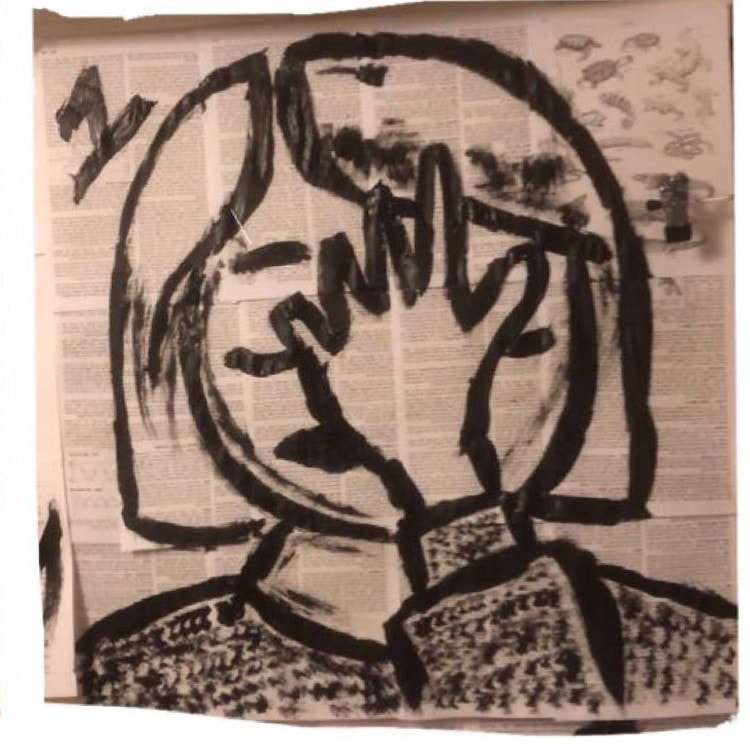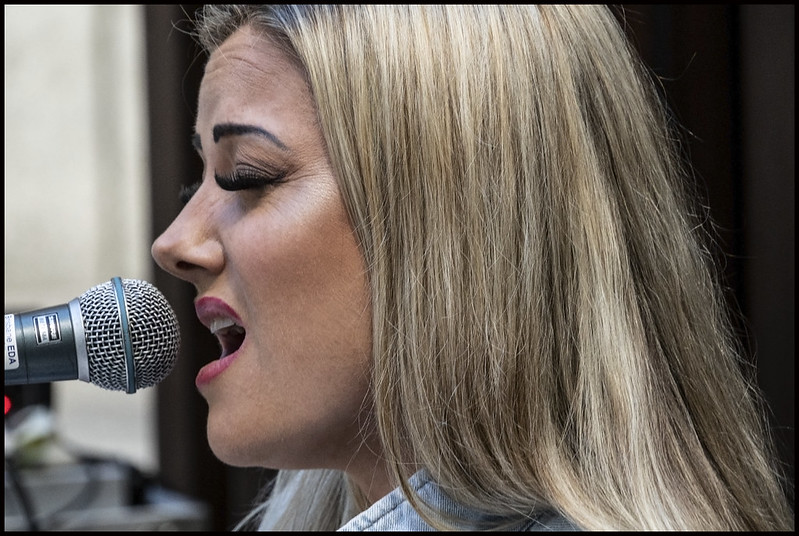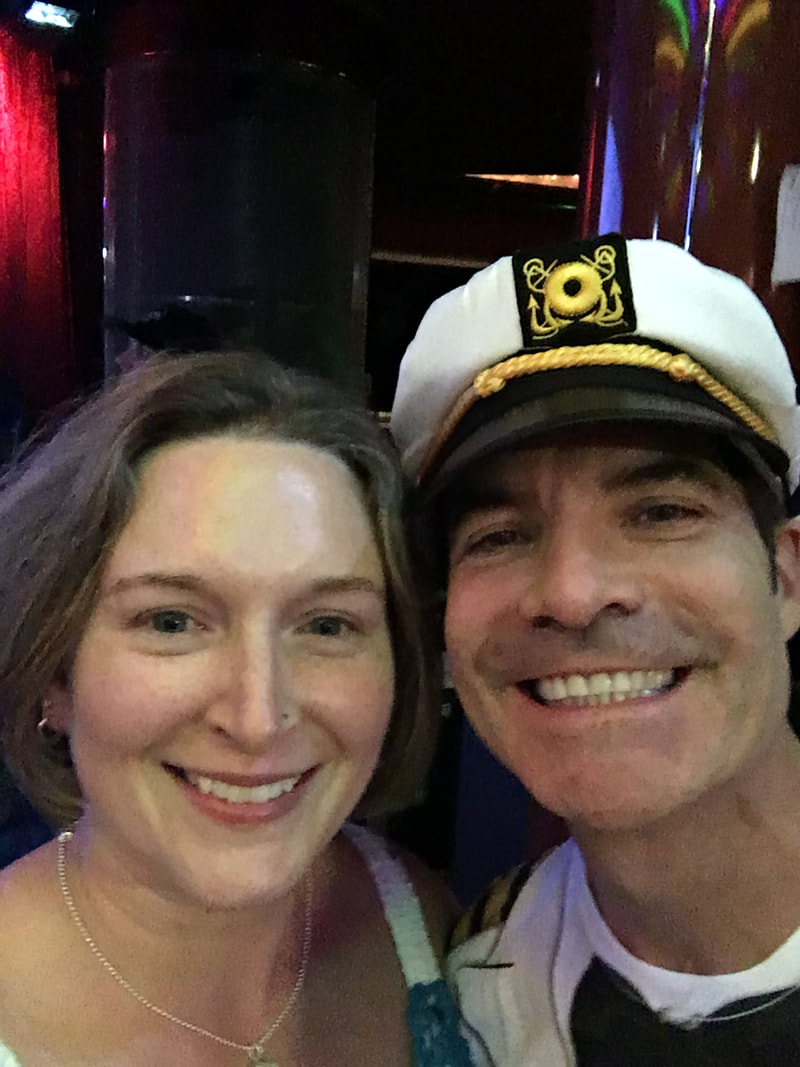|
I’ve been waiting for this all day. I did the breakfast thing, the making-the-kids-lunch thing. My coffee has long been drained. I’ve been playing with my toddler for hours. I even went for a walk. But now, for two short hours, the house is quiet, and it’s my time. It’s time to write.
I straighten my notebooks and organize my pens. I shove everyone else’s crap from my desk to the floor and put on the sweatshirt that’s draped over the chair. (Am I the only one who gets freezing cold when I’m writing? Seriously, it’s a disability.) I sit down, fingers poised over the keyboard, blank document open on the screen. I have precious little time. But where do I start? The answer to that question is another question — the essential question for anyone who writes blog posts, personal essays, or anything else people want to read. What am I struggling with right now? Well, hold on a second. What is that about? Why does something have to be going wrong in my life for me to write? Can’t I just write a quick story about how things are mostly fine for me at the moment? I could. It’s just that nobody would want to read it. This is really irritating for some writers. Many of us read through submission requirements with a scowl. “What do you mean I need to be helping the reader solve a problem? This is a beautifully written story about the time I went snowshoeing in the Adirondacks.” And it probably is very well-written. I bet your descriptions paint a picture of the landscape and convey what you saw and maybe even how you were feeling at the time. I bet it sings to you. But writing on the internet isn’t about you. When you put something on the web, you’re putting it there so someone will read it. Otherwise, why put it there? And, when you’re writing for an audience, even your most gorgeous, lyrical writing won’t be seen, much less read, unless you’re answering a question or solving a problem for the reader — something that someone might type into a search bar and click the first couple links that appear. I’ll be candid: That’s why I don’t often put my short stories on the internet. Even if you enjoy a good work of fiction, when was the last time you typed, “short story,” into Google? Never? Thought so. And if you happened upon a short story about a girl and her pet chicken while looking for the answer to, “How to tell which of my hens isn’t laying eggs,” you’d bounce out and look for something relevant. Writing on the information superhighway has everything to do with the reader and very little to do with the writer The second you decided you wanted to publish your words alongside everyone else’s words, you gave in to the singular premise that, if you want to be read, if you want to make money, if you want people to know your name and pass along your work to their friends, family, and colleagues — you can’t just tell cool stories. Sure, if you infuse yourself in such a way that people can see themselves in your writing, they’ll enjoy it more. If you showcase your sense of humor, they’ll be entertained. But if you don’t help them with something in their life while you’re at it, you might as well be writing in your journal. Instead of typing up amusing anecdotes and sending them off into the black hole that is the blogosphere, and then wondering why people aren’t knocking down your door for more, you’re going to want to change your approach just a hair. How? With another question, of course. Why should anybody care about this? You don’t need to throw up your hands and hit delete on all your cool stories quite yet. Instead, take a look at the story and try and figure out why it’s important to you. The story could be — as some of mine are — something that was really funny in the moment to someone who knows all the players, but would require too much background for the reader to make writing the story worth it. Or, maybe during the course of the story, you learned something about yourself or the world — something you can generalize in a way that will help others experiencing the same dilemma. Maybe you learned something about your relationship with your grandmother, or the meaning of life, or why seltzer is so satisfying. If your answer is the latter, then it might be that your story just needs a new ending, one that makes a connection between you and your reader in a way that benefits them. Other questions you can ask:
0 Comments
I discovered Bohemian Rhapsody when I was six years old. Around the same time, I discovered I could carry a tune. Or I imagined I could carry one, anyway. You'll have to ask my (very tolerant) family members for their opinion. I'm sure they'll give you the unbiased truth. Whether or not I was any good at singing, after that day, you couldn't shut me up if you tried. I had found my calling. I would grow up to become a professional singer. I learned every single word to Queen's Greatest Hits album, of course, but I didn't discriminate. Small town Missouri doesn't exist without country music, and so I made quick work of adding Randy Travis and The Judds to my catalog. My parents listened to rock in the car (I almost said classic rock, but it wasn't classic back then!), and in went Aerosmith and John Fogerty. During P.E. in middle school, my friends and I would sing Green Day songs as we did our jogging warmup. In high school, we would take over one of the classrooms to sing sad, sappy Jewel songs in floppy harmony. I sang in the car. I sang at work. I sang in the aisles of the grocery store. I'm sure my compulsive vocalizations caused their fair share of annoyance, but most people were kind enough not to say anything. "You've got a great voice," someone would occasionally say. "Thanks," I'd say with a grin, my heart swelling with validation. Breaking news: I didn't become a professional singer. I graduated from college and went into Teach For America and moved to California and made a bunch of cool friends who did crazy things like leave the house on the weekends - something to which I was wholly unaccustomed. I'd never been to many bars - I'd graduated college at 20, and ID requirements in Boston were strict. But here I was, a 22-year-old with a group of twentysomething friends doing what people like us apparently did on Friday nights: go to the bar. And at one of these bars, there was a sign, written on the chalkboard over the stairs to the lower level. Karaoke tonight. ↘️ "Karaoke! I love karaoke," said Christina. "You should totally sing," said Rachele. My heart exploded for a second. I'd never held a microphone in my life. I couldn't imagine standing in front of all these people, whose attention would surely be concentrated squarely on me, and doing ... what, the exact same thing I did every other day? Meh, what the hell. I grabbed a song book and a quarter-page slip of paper and a golf pencil and retreated into a corner of the bar to pick my song. See, here's the thing about karaoke: you can know every word to every single song on the planet, and the minute you get the coveted karaoke book in your hands (Do you want "By Title" or "By Artist?" Big decision!) your mind becomes applesauce. I must have sat for half an hour with that book in my lap, flipping through and trying to find literally any song whose tune I knew well enough to sing it. And, finally, I found it. Killing me Softly by the Fugees. I loved that song! "Nicci, you're up," said the DJ and then he whispered in my ear, "The Fugees version is scratched. Is it OK if you do Roberta?" I nodded enthusiastically. I'd been watching a lot of Hugh Grant's "About a Boy" at the time. Not to spoil anything, but there's a lot of "Killing me Softly" going on in that film. I could definitely do this. But when the music started, I realized something. I'd heard this song a thousand times, but I didn't actually know it. I knew none of the words, or how they went with the music. So I just stood there, mumbling and trying not to cry, with the redness creeping from my chest all the way to the top of my forehead, until the song was over. The only consolation is that, aside from my friends, everyone in the bar was so busy with their drinks and conversations, my colossal embarrassment didn't even register. I spent the next five years seeking redemption for that failure of an outing. The pub down the street from our apartment had karaoke every Sunday night, and my friends and I would venture out when there was a Monday holiday. We pushed through throngs of sweaty 40-year-olds to play tug-of-war with the song books and put in four requests at once. I built up a list of go-tos, sometimes singing duets with my friends, the regulars, or the host. Roberta Flack's version of Killing Me Softly made the cut, but only after I'd sung it a thousand times alone in my car. Eventually my friends and I became the regulars. We found other singing spots, too. We knew who had the best catalog and who was using digital equipment instead of CDs. My bachelorette party even contained a stop at a karaoke bar, and somewhere, there exists a terrible-quality mp3 commemorating the occasion. That was all before gender reveal parties and school drop-offs, when Monday holidays meant we could sleep it off until noon and wake up with a Bloody Mary and go hunting for a fried-ass breakfast. Fast forward to 2016. I was a mom and a school administrator living in Boston. Even if I'd known where to find karaoke, only in my dreams would I have been able to go sing. But it was February, and I was off the coast of the Dominican Republic. On a cruise ship. Hear me out. I know literally zero people who would dream of getting onto a floating petri dish with a few thousand strangers in 2022. But remember, this was years ago, and Sail Across the Sun was not just any cruise - it was a music cruise with multiple concerts every day. The smallest ones contained only a couple dozen folks, and you got to meet and chat with the artists between sets. If you arrived early enough to the biggest ones, you could get a spot right next to the stage. And, of, course, there was karaoke. More than ten years after my first embarrassing showing, I found myself descending another set of stairs into a huge lounge with a stage at the front. From there, it was all muscle memory. I didn't need to spend a half-hour thumbing through the book: I knew exactly what I would sing. And before I could finish my first drink, I was up. At first, my fellow travelers sipped their drinks and kept on with their conversations. With the first chorus, though, things changed. Heads turned and eyebrows raised. People started moving and singing along. "All right!" someone said. By the last note, the area around the stage was packed. The applause was like a warm, validating hug. I turned to leave the stage and was face to face with the lead signer of the biggest band there - someone whose voice and whose music had moved me through two decades. "That was fucking awesome," he said to me. "You have an amazing voice." If I hadn't already slid the mic back into the stand, I would have dropped it right there. Because what better way to cap off my karaoke reunion tour than with a hug and an endorsement from my favorite artist? Subscribers to my newsletter this week will get even more fun karaoke stuff like my song list and some embarrassing photos from those days, if I can dig them up. Don't forget to sign up using the form on this page or by clicking here!
|
Nicci KadilakI'm the boss around here.
Archives
January 2023
Categories
All
|




 RSS Feed
RSS Feed